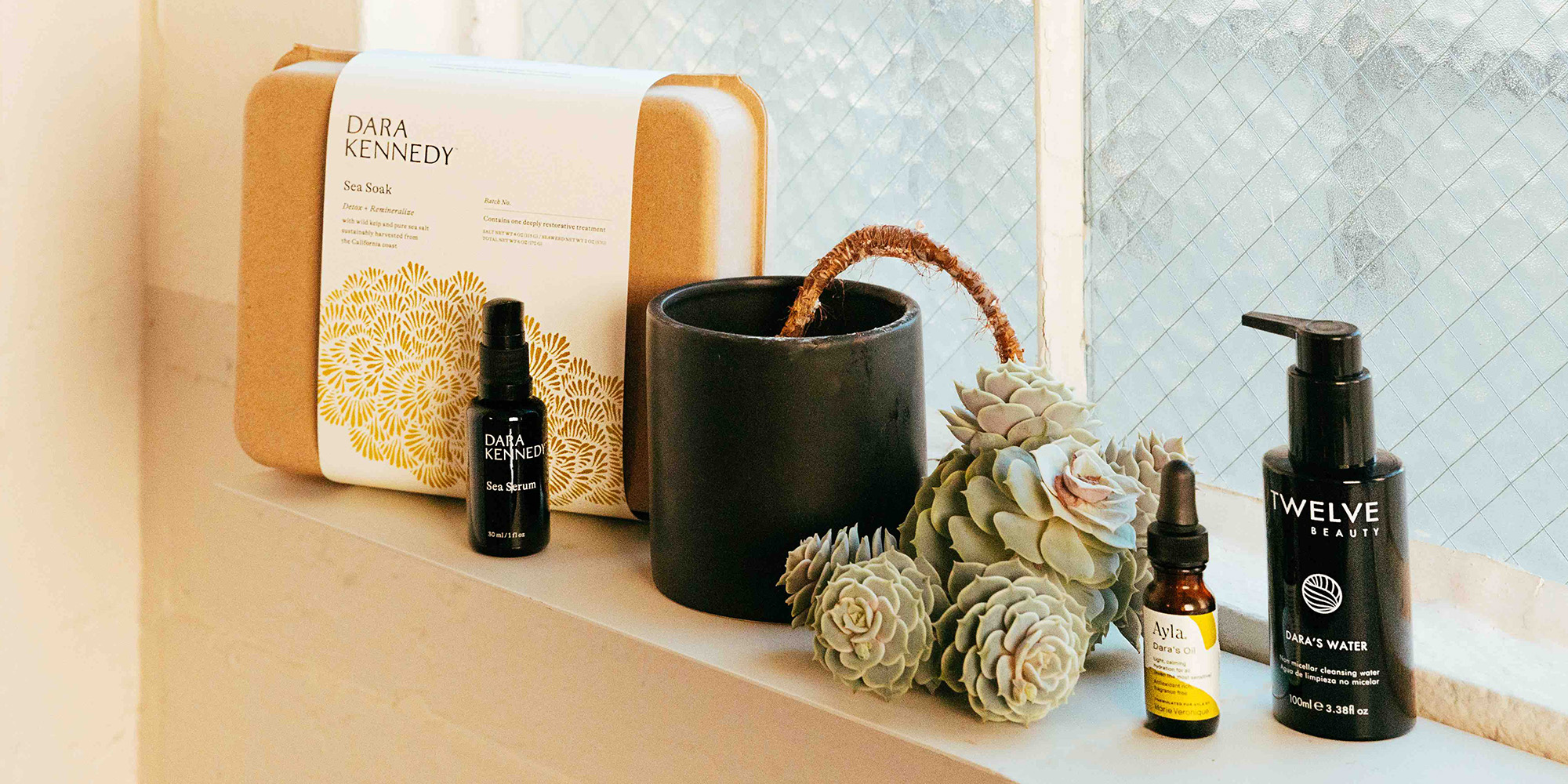
Beauty Retailer Ayla’s Distinct “Quiet Luxury” Approach Is Keeping It In Business
So much has changed since Dara Kennedy, previously global marketing manager at Elizabeth Arden, established beauty store Ayla online in 2011 before opening its San Francisco location two years later. Back then, Credo didn’t exist, and clean beauty had yet to become a beauty industry platitude, not to mention that Siri was just giving most Americans their first glimpse at AI, TikTok was an onomatopoeia related to clocks, gen alpha hadn’t learned the alphabet and the idea of a global pandemic was the stuff of apocalyptic movies and history books.
For Kennedy’s carefully curated premium beauty retail business, she says one of the biggest changes in the last dozen years has been an onslaught of discounting in prestige beauty. “It was around 2019 that I saw the category really ramping up the promotional activity,” she recounts. “That was when I really started to think I have to make an effort to address this to keep our business healthy. It’s continued to become increasingly promotional, and at the same time, all of us have had shipping and labor costs increase, and the math doesn’t work out the way it used to.”
An integral element of Kennedy’s efforts to keep Ayla’s business healthy has been exclusive brand collaborations and the in-house line, Dara Kennedy. She started collaborating with brands on products in 2017, which saw the release of $77 Dara’s Oil, an anti-inflammatory face oil produced with Marie Veronique. Dara’s Oil is now joined by four more collaboration products: $46 Dara’s Water with Twelve Beauty, and $39 Foot Therapy, $67 Guldkorn Cream and $41 Happy Tea with MyHavtorn.
In addition, Ayla sells three exclusive products from J.M. Generals—$29 Organic Goat’s Milk Body Cream, $29 Goat’s Milk Liquid Soap & Shower Gel and $18 Castile Organic Goat’s Milk Soap—and two products from the Dara Kennedy line: $59 Sea Soak and $135 Sea Serum. Ayla’s exclusive products have registered 3X year-over-over growth as a percentage of total sales, and Dara Kennedy merchandise has registered 10X year-over-year growth as a percentage of total sales. Ayla declined to divulge exact sales figures. E-commerce contributes the majority of its sales. Skincare is its bread and butter.
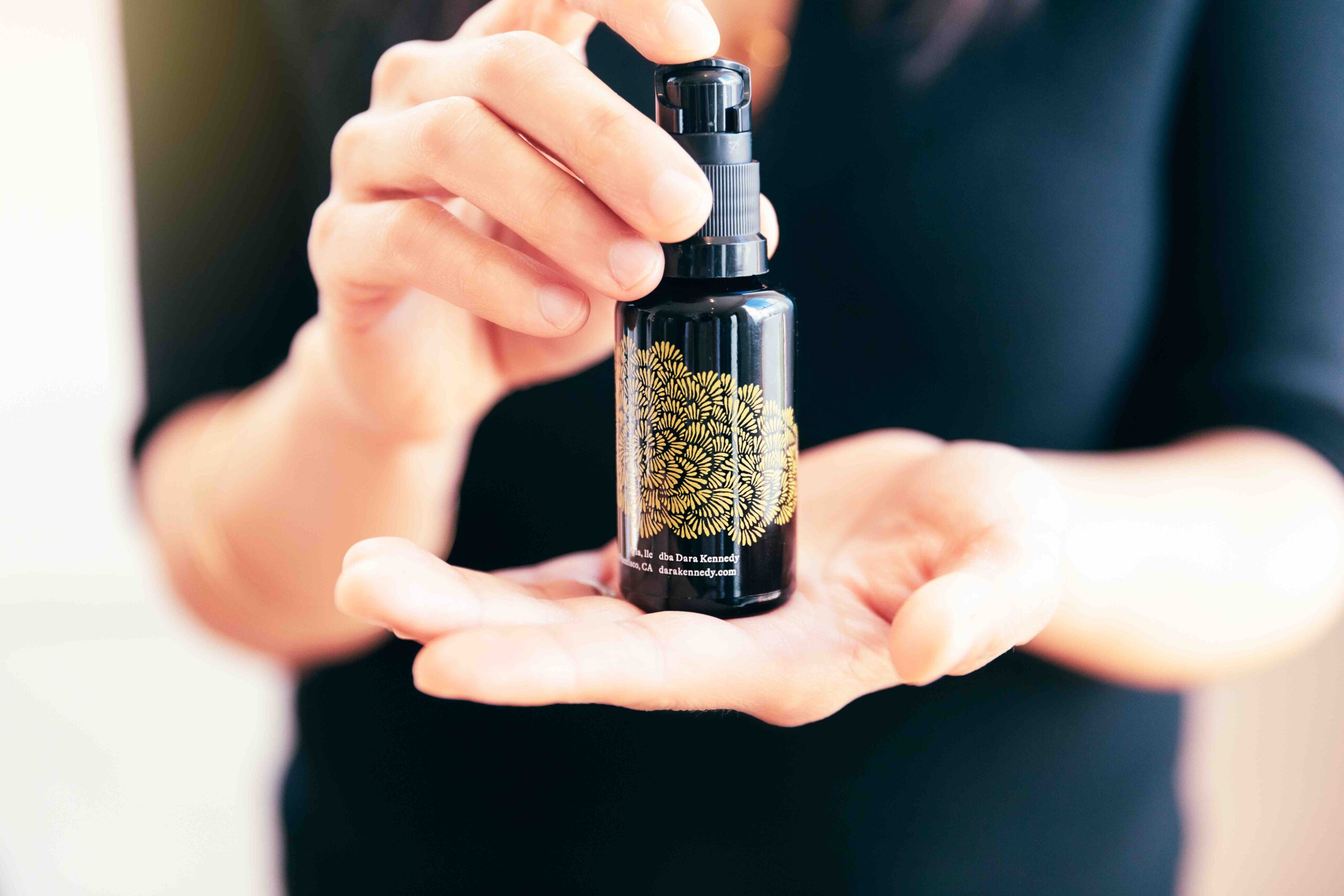
“Because the products that we create aren’t perhaps the typical products that you would see being rolled out, it definitely does provide a shield for us because we are providing something unique that no one else can. I think that in and of itself is helpful,” says Kennedy. “Then, I think it also helps you underscore where you are different and how your perspective is different.”
Ayla’s different perspective is derived in part from the history it has with the brands it carries and Kennedy’s globetrotting approach to scouting merchandise. Ayla carries nearly 70 brands, and they’re roughly evenly split between brands based in the United States and brands based outside the U.S. On its website, it lists brands by geographic location and exploring its assortment is a process in product discovery almost akin to happening upon a store abroad with unfamiliar, yet captivating items.
“The math doesn’t work out the way it used to.”
Kennedy ran across the probiotic brand Omni-Biotic, a new Ayla entrant, while traveling in Europe. It doesn’t necessarily have the snazziest packaging, but its targeted probiotics are clinically studied to be effective. Ayla dives into Omni-Biotic’s story on its blog and in email marketing. Kennedy says Ayla is experiencing “strong” overall sales growth this year, driven by holistic wellness products like those from Omni-Biotic along with its exclusive collaboration products and in-house line.
With the launch of Sea Serum in May, Kennedy introduced her namesake line. Potent natural ingredients are stars of the line. Sea Serum features seaweeds and coastal plants from California, France and Ireland. There’s a site dedicated to the Dara Kennedy line, although Kennedy describes it as a “place holder” that directs people to Ayla’s e-commerce platform rather than a business producer. “I put that under the Dara Kennedy brand to create a little bit of separation of the products that we make purely on our own and the products that we do in collaboration,” she says. “It’s there because I figure people will look it up, so we should have something.”
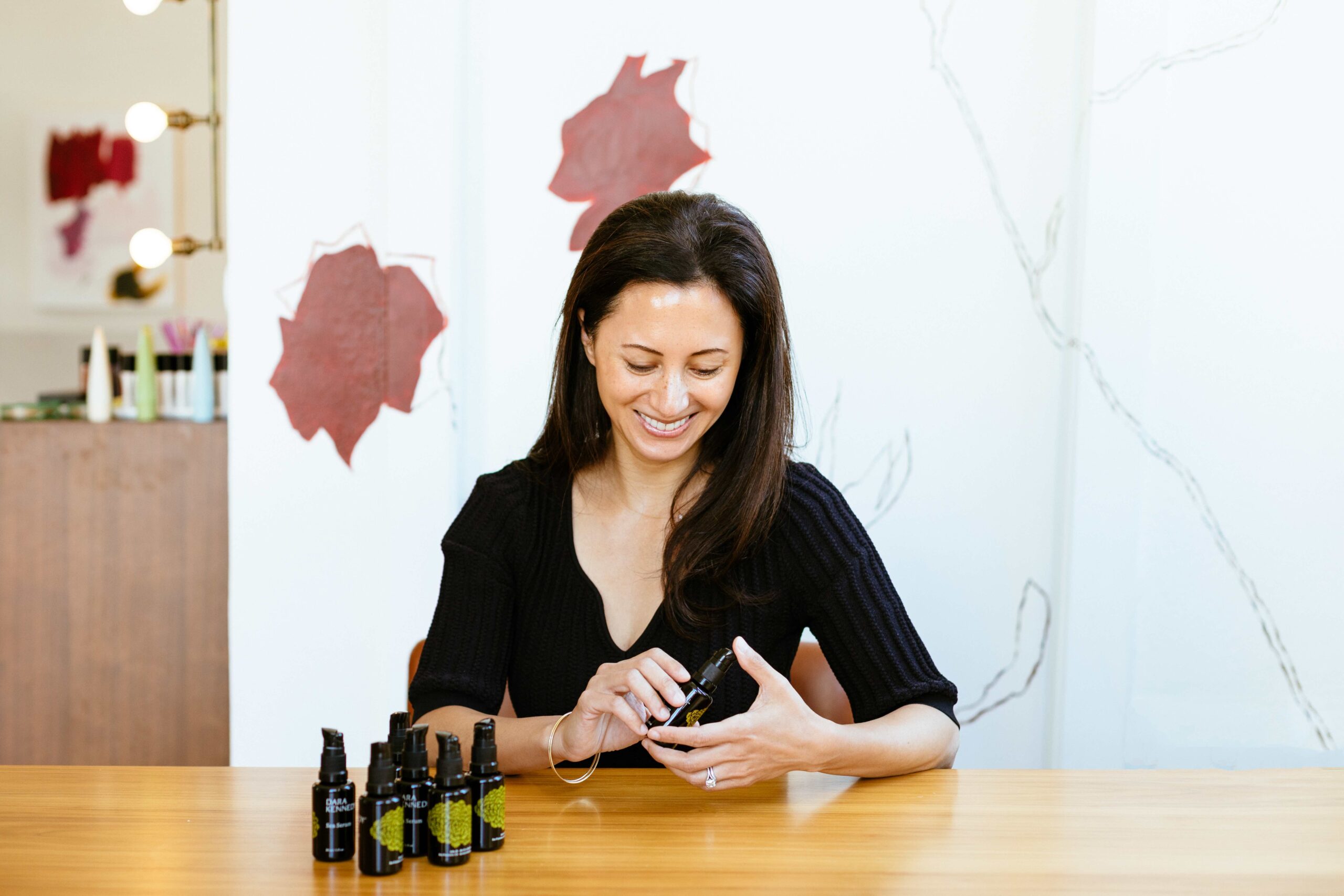
Often brands worry that retailers’ in-house products will eat into their sales and attention. That’s not a problem at Ayla, according to Kennedy. “They are very complementary to the other products and brands that we sell,” she says. “It has kept our business healthy, and it has also not negatively impacted the performance of the brands that we carry. It has actually improved them. For example, Sea Serum works beautifully with Marie Veronique’s retinol, and we often mention the two together as a perfect partnership for nighttime.”
Kennedy’s close and lengthy connections to brands and their founders leads to conversations that intuitively generate product collaborations. Dara’s Oil arose from a conversation Kennedy had with Marie Veronique founder Marie Nadeau about her allergy to vitamin E, an antioxidant prevalent in skincare. Dara’s Oil doesn’t contain it.
“We all love what we do so much that we would do this forever, and we will do this forever if we can.”
During a visit to Ayla in 2017, Pedro Catalá, founder of Twelve Beauty, says Kennedy dared him to formulate an impactful cleansing water. In 2021, he presented her with a soap-free formula designed to remove makeup and sunscreen and be gentle for sensitive skin. Catalá says, “Dara got so excited with the final result to the point of wanting to have her name on it, a wish to which, of course, I granted with pleasure.” The formula became Dara’s Water.
The financial arrangement between Ayla and its brand collaborators is settled on a case-by-case basis. Kennedy says, “With Happy Tea, we buy the raw ingredient, which is the tea, and we package it here because otherwise the product would be too cost prohibitive. Then, in other cases, it’s a margin agreed upon between us and the brand.” Composed of sea buckthorn tree leaves, Happy Tea sold out within 24 hours last year. Kennedy says, “It’s such a special product. It’s the only time you can have a tea where you know who has been picking each leaf off the plant.”
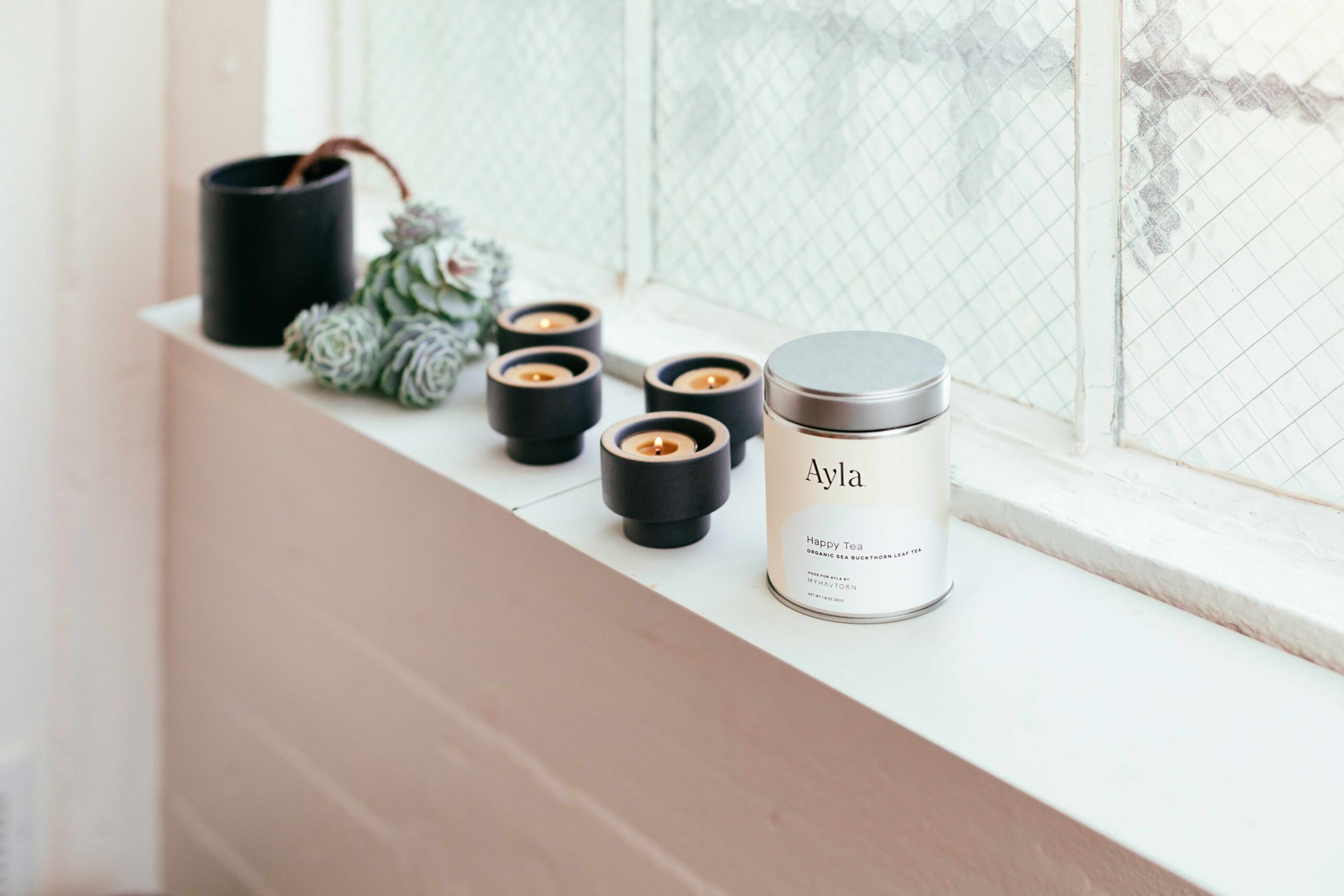
Because they emerge organically from brand relationships, there’s no set cadence for Ayla’s brand collaborations. “Everyone who we have done a collaboration with or we would do a collaboration are the types of brands where we all love what we do so much that we would do this forever, and we will do this forever if we can,” says Kennedy. “There’s a special type of passion that comes with that versus other brands that may be there specifically to take an advantage of an opportunity they see in the market. Not that those brands aren’t as good, but there’s a different sensibility to them.”
Getting back the discounting issue, another reason for Ayla to tread cautiously with opportunistic brands is they tend to be avid discounters and aggressive distribution expanders, making both themselves and a slew of retailers potential competitors for Ayla. “One thing that I love about some of our partners is they have very strong expectations of either not discounting or discounting a certain number of times per year, which I think is a great practice to follow,” says Kennedy. “If you are an independent retailer, and you are struggling with this, the best thing to do is to talk to the brands individually and ask about their strategy and make sure it works for everyone.”
She concludes, “We’ve all got to find solutions that work, and it usually will come down the individual parties’ relationship. Brands recognize that, if the retailer’s business isn’t healthy, they are not going to be able to spread the word about the brands. The same with the retailers. You love your brands, you want them to stick around. In the midst of an economy like this and market dynamics like this, it can be hard to remember that we have this shared goal.”

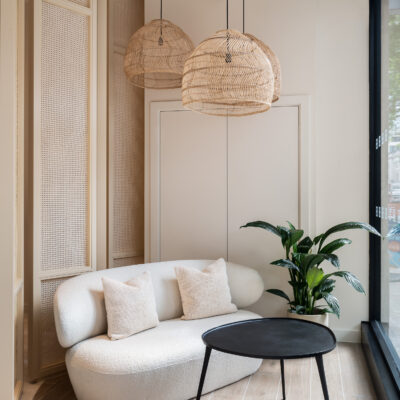
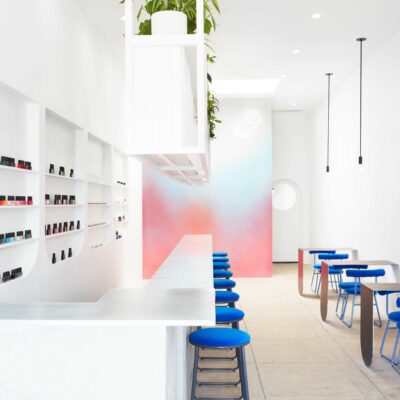
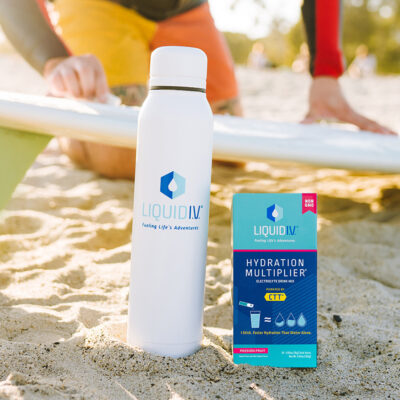

Leave a Reply
You must be logged in to post a comment.